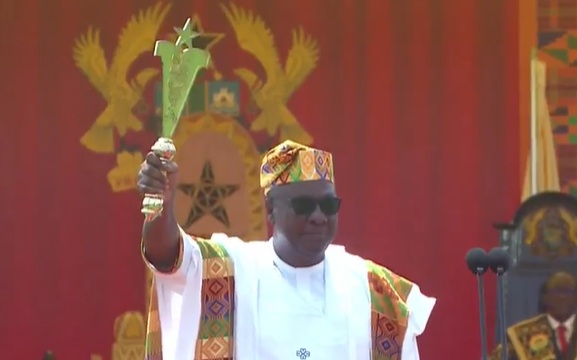
Ghanaians divided over govt’s ability to tame inflation
DAYS after the inauguration of Ghana’s new president, John Dramani Mahama, on January 7, 2025, the public remains divided over whether the new government can effectively control inflation, a pressing issue that has gripped the country for years.
In 2024, Ghana experienced significant fluctuations in its inflation rate, reflecting both domestic economic challenges and global economic pressures.
According to the Ghana Statistical Services (GSS), by December 2024, inflation had climbed from 23 per cent in November to 23.8 per cent, driven primarily by rising food prices.
Before the vetting of Finance Minister-designate, Dr Cassiel Ato Forson, yesterday, some citizens expressed mixed reactions to the government’s potential to stabilise prices, boost economic growth, and ease the financial burden on households.
In recent months, inflation has been a major source of concern for many Ghanaians, with rising prices for food, fuel and essential goods affecting daily lives.
The new administration has promised to tackle the problem head-on, but public opinion remains far from unanimous.
Opinions
Boris Osei, a shop owner in Koforidua, expressed scepticism about the NDC’s ability to make a meaningful impact on inflation.
According to him, the global nature of inflation limits what any government can achieve, even with the best intentions.
He believes Ghanaians should manage their expectations and focus on solutions that extend beyond political promises.
"I don’t think the new administration will do any better. Inflation is a global issue, not something a single government can control entirely. They might promise a lot, but I am not holding my breath," he said.
On the other hand, Martina Olivia Agbo, a restaurant owner based in Accra, expressed optimism about the new administration’s approach.
Madam Martina emphasised that tackling inflation required a multi-pronged approach, including addressing inefficiencies in local production and transportation.
She is hopeful that the NDC’s economic team has studied the lessons of the past administration and is ready to implement more effective policies.
"I believe they can. They seem to have a clear plan, and if they focus on improving supply chains and fiscal policies, we might see some positive changes," she said.
George Osei, a journalist at Despite media, took a more neutral stance as he acknowledged that inflation was driven by both domestic and external factors, including global oil prices and disruptions in international trade.
He believes that success will depend on the new government’s ability to respond quickly to global economic shocks.
"It’s hard to say. Both administrations have their flaws, and inflation is a complex issue. I think it depends on how well they adapt to unforeseen challenges," he explained.
Regina Oppong, a student at a nursing college, expressed strong confidence in the government’s ability to address inflation.
For Regina, the fresh perspective and renewed energy of the new administration are reasons for hope.
She believes the government’s focus on transparency and accountability could make a real difference in the fight against inflation.
"Absolutely, I think the new team has fresh ideas and a proactive approach. They seem more in tune with what’s causing the problem," she said.
Prince Amoateng, a taxi driver in Accra, dismissed the idea that the NDC administration would bring significant change.
Amoateng’s cynicism reflects the frustration of many Ghanaians who feel disillusioned by successive governments’ inability to address economic challenges.
"No way. Politicians always make big claims, but in the end, they cater to their own interests. Inflation is just another thing they’ll blame on external factors," he said.
A divided nation
As the debate continues, the finance minister-designate’s performance during the vetting process has offered clues about the government’s strategy for tackling inflation.
Analysts are watching closely to see whether the administration’s plans will prioritise boosting local production, curbing public spending or strengthening the cedi.
The coming months will reveal whether the NDC can live up to its promises and deliver relief to struggling households.
For now, Ghanaians remain hopeful yet cautious, with opinions as varied as the challenges facing the nation’s economy.
IMF funding
The finance minister nominee, Ato Forson, has already hinted that the new government could seek extra funding from the International Monetary Fund (IMF) during its current three-year programme with the lender in order to cushion the economy.
“We are committed to work with the IMF, but we also want to ensure that we can raise financing; additional finance, working with IMF and other domestic, international partners,” Mr Forson told reporters ahead of a meeting with an IMF team that is currently visiting Accra.
“The reliance on treasury bills and others has not been very helpful,” said Mr Forson, who has also served as a deputy finance minister.
President Mahama has asserted that restoring economic stability and achieving macroeconomic balance will be the central focus of his administration’s agenda.